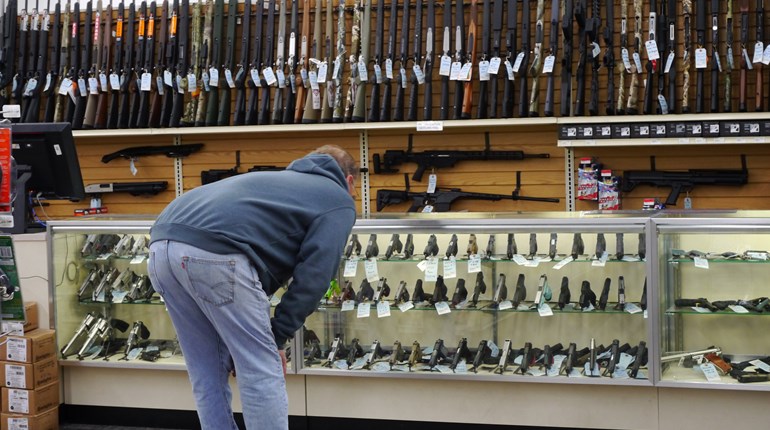
Mexico’s ongoing lawsuit blaming U.S. gun manufacturers for runaway violence south of the border is drawing renewed attention, with many interested parties petitioning the U.S. Supreme Court to review the case.
In the lawsuit Smith & Wesson Brands, Inc. v Estados Unidos Mexicanos, gun-rights groups, state attorneys general, and gun manufacturers are all calling on the U.S. Supreme Court to hear the case and overturn the earlier First Circuit Court ruling that the action does not violate the Protection of Lawful Commerce in Arms Act (PLCAA). The circuit court’s decision allowed the lawsuit to continue.
In its lawsuit filed in 2021, the Mexican government alleges that American gun companies have undermined its strict gun laws by designing, marketing, and distributing so-called “assault weapons” in ways they allegedly knew would arm drug cartels and fuel murders, extortions, and kidnappings in the country.
On May 22, the National Rifle Association filed an amicus brief with the high court emphasizing that the lawsuit is exactly the kind of litigation that PLCAA was meant to prevent. The NRA amicus brief states that “Mexico has extinguished its constitutional arms right and now seeks to extinguish America’s. To that end, Mexico aims to destroy the American firearms industry financially.”
“This case exemplifies why PLCAA was enacted,” the brief continues. “Mexico seeks billions of dollars in damages and the imposition of extensive gun controls in America while relying on shoddy data and false allegations to exaggerate the impact of Petitioners’ firearms on Mexican homicides.”
The NRA brief also called out Mexico’s claim that the increase in gun production after the sunsetting of the Clinton-era “assault weapons” ban led to more violent crime in the U.S.
“If Petitioners’ firearms cause an increase in homicides, then the U.S. should have experienced a homicide increase after the ‘assault weapons’ ban’s expiration,” the brief states. “It did not. The U.S. homicide rate in the six years following the ban (2005-2010) never exceeded the rate from the last full year that the ban was in effect (2003).”
Along with the NRA, the top law-enforcement officers of more than half of U.S. states have also petitioned the Supreme Court to hear the case. Led by Montana Attorney General Austin Knudsen (R), the coalition of 27 state AGs is petitioning SCOTUS to correct a lower court’s ruling.
“American firearms manufacturers should not and do not have to answer for the actions of criminals, as established by the commonsense federal Protection of Lawful Commerce in Arms Act,” Knudsen said in a release announcing the action. “Mexico’s bad policies created the country’s gun violence problem. Rather than take responsibility, Mexico and anti-gun activists are trying to blame and bankrupt American companies that follow the law. The appeals court erred in their decision, and the Supreme Court needs to correct it.”
The brief filed by the attorneys general stated: “Congress recognized the public’s right to keep and bear arms was all-but-meaningless if firearms manufacturers were put out of business, and further recognized the importance of the firearms industry to the military and law enforcement. So, Congress enacted the Protection of Lawful Commerce in Arms Act of 2005 ... . You might think that would be the end of it. But the activists are at it again, trying to cram the same creative legal theories with even more tenuous chains of causation into PLCAA’s narrow exceptions, admittedly attempting to achieve through litigation what Congress rejected.”
Along with Montana, states whose AGs signed on to the brief included Alabama, Alaska, Arizona, Arkansas, Florida, Georgia, Idaho, Indiana, Iowa, Kansas, Kentucky, Louisiana, Mississippi, Missouri, Nebraska, New Hampshire, North Dakota, Oklahoma, South Carolina, South Dakota, Tennessee, Texas, Utah, Virginia, West Virginia, and Wyoming .
Just last month, eight U.S. firearms manufacturers also asked the U.S. Supreme Court to take the case, arguing that, without the court’s intervention, the firearms industry would face years of costly litigation by a “foreign sovereign that is trying to bully the industry into adopting a host of gun-control measures that have been repeatedly rejected by American voters.”


































